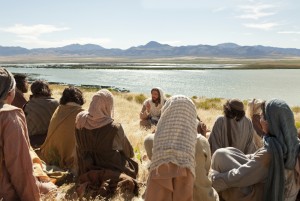
Over the years I’ve found that few teachings of Jesus are meant to be viewed as “required” behaviours, needed to please God and earn a place in heaven, as they are about a God who is already pleased by our existence and would love to see us live a life filled with meaning and joy. Luke’s gospel of “Blessings and Woes” is a shorter version of Matthew’s “Beatitudes” (Mt 5:1-11) and teach less about rules to be followed, as attitudes by which to live life more fully.
Jesus tells us that our life is enriched when we recognize that we are poor without God’s grace in our life; that we have been given everything we need by a God who loved us from the very beginning. Our lives will become even more blessed when we honour the presence of God in others, especially those who are the most vulnerable in the world.
Jesus tells us that our life will be fuller when we hunger to know God better and that our deepest hungers will be satisfied if we continually seek to discover God’s hopes for us and the world we live in.
Jesus tells us that our lives will never be empty if we trust in God’s love and mercy in times of loss and suffering, and if we reach out with compassion to others who struggle to find joy or hope, we discover an even greater joy.
Jesus tells us that God will strengthen and guide us when we stand up for justice, peace and the dignity of others, even though others may reject or ridicule our actions. God will abundantly bless anyone who works to protect the well-being of any of God’s creation.
The “woes” of Luke show that the reverse is also true.
When we place our trust and energy only in the values of the secular world around us, we will eventually be disappointed and diminished. We know that being financially secure and possessing many comforts is no guarantee of health, happiness or a life of meaningful purpose.
Having abundant food to eat does nothing to satisfy the deeper hungers created by loneliness, rejection or a lack of self-worth.
Living without cares or responsibilities will not protect us from the pain of loss or suffering.
Being admired or esteemed for your possessions, success or appearance is fleeting and is no indication of an ethical lifestyle or a life based on moral integrity. As the first reading of Jeremiah tells us, when we trust and live by the values of God, we are like a tree that has its roots near a fresh spring. When the “droughts” of suffering and difficulty come into our lives, we are still able to live life with a fullness that bears fruit.
FEB
2019

About the Author: